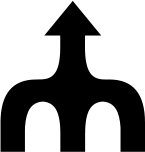
It is only proper that I make this posting on December 8th, which is the last day of the
Google Scholar's blog before it goes on hiatus for a much deserved sabbatical. It has been my pleasure to have been the recipient of the Google Scholar's mentorship. Without any idea of what I was doing or where I was going, the Google Scholar showed me what it takes to be a librarian. Here is what I learned:
(10) Teaching - As he says so often, the profession has changed immensely over the last twenty years. Emphasis on
teaching has never been as great as it is now, and that is one of the reasons why librarians must also be great teachers, which the Google Scholar is.
(9) Empathy - He treats his students and employees as he would a top-level administrator. He sees the profession not as a hierarchical ladder, but as a community where information flows as freely as emotions and thoughts. He stands up for his employees and colleagues, and puts his neck on the line for them. When he sees students in need, he doesn't think twice about phoning them and asking how they're doing during their late evening shifts.
(8) Networks - He believes in social networks, not for personal gain, but for collaboration and learning. The Scholar's reach in the library, academic, and medical community is far and wide. He reaches out, and connects people not only to information, but also to other people.
(7) Cooperation - He believes in librarians helping each other. He believes that equal opportunities exist for all, and hence, his support for such things as
open-access,
PubMed, and
Google Scholar.
(6) Knowledge - The Google Scholar is one of the premiere
information retrieval experts in the profession. More admirably, he believes in sharing his knowledge, which he does through his tireless writings on his blog and discussions with colleagues and students.
(5) Believing in oneself - As he tells all his students, self-confidence is the key to success. Although he offers opinions, when it really matters, he steps back and allows his mentees to think for themselves, for he knows they are ultimately the ones who control their own destinies. He creates pathways, and allows us to find our own destinations.
(4) Humour - The Google Scholar is also a performer and comedian. He can light up any audience with his lighthearted quips and creative improvisation, often at the most appropriate of times.
(3) Technology - If there is one thing that I learned from the Google Scholar, it is to keep up with technology. In the library profession, technology is important as ever, and is a key goal in helping maximize information resources for the users and patrons. Google, blogging,
mashups,
blikis, etc. They keep on coming, and the Google Scholar keeps on absorbing. Nothing gets by this man.
(2) Hard work - Paying your dues. That's what the Google Scholar's career is all about. As he so often tells us, he started out with no clear indication of where he was going. All he knew was that he wanted to be a
health librarian in order to make a difference in people's lives. Through sheer determination and hard work, he has done just that. And much more.
(1) Passion - If there's one thing that defines the Google Scholar, it is passion, a pure love of librarianship. Regardless of how one performs and how knowledgeable one is, nothing can compensate for passion. He breathes and bleeds librarianship. His passion is contagious. He is not only a mentor and teacher, but also a true friend.
 Shelley Hourston's "Creativity and the resilient health librarian" offers a fascinating look into one aspect of librarianship which is underappreciated: creativity. Librarians do a lot, especially with limited resources in health libraries, including cataloguing (descriptive and subject analysis); reference interviews; collection development; database searching; justifying the existence of the library, just to name a few.
Shelley Hourston's "Creativity and the resilient health librarian" offers a fascinating look into one aspect of librarianship which is underappreciated: creativity. Librarians do a lot, especially with limited resources in health libraries, including cataloguing (descriptive and subject analysis); reference interviews; collection development; database searching; justifying the existence of the library, just to name a few.













